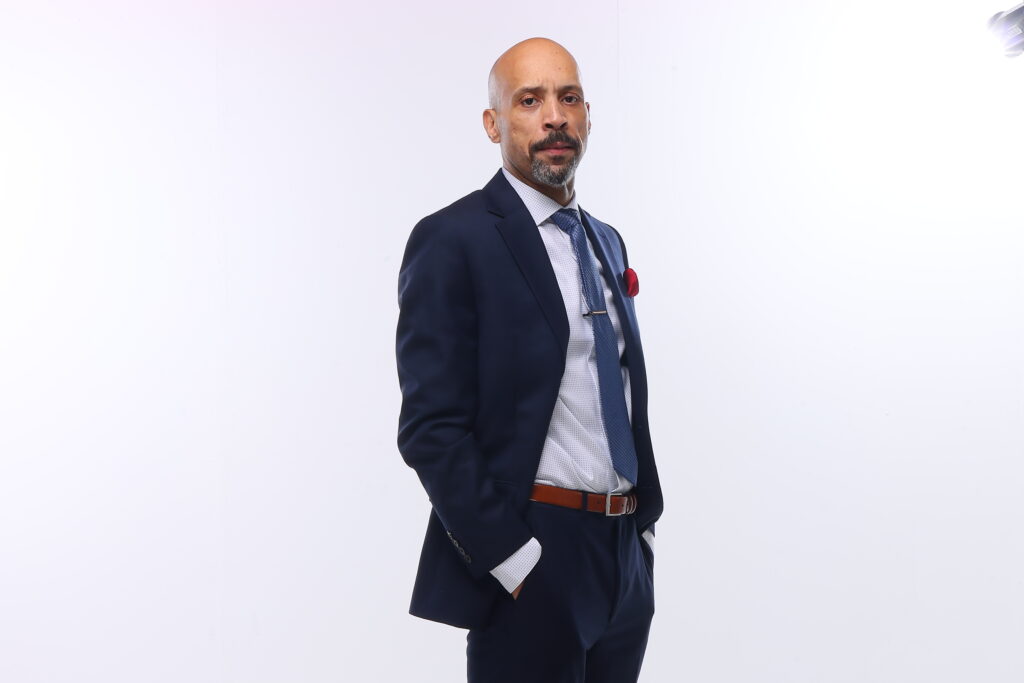Starting May 29th, the 14th Annual UNCF Student Leadership Conference (SLC) will welcome 1330 undergraduate students from diverse backgrounds across the U.S., who will converge in the nation’s capital. From May 29th to June 1st, the Crystal Gateway Marriott in Arlington, VA, will buzz with dynamic energy as students immerse themselves in a transformative experience.
In commemoration of 80 years, UNCF (United Negro College Fund) is still helping people of color with funding for higher education, along with elevating their skills through career readiness workshops to prepare them for the workforce. UNCF returns with a spectacular three-day event for the invigorating learner. Keynote addresses and presentations by corporate leaders will arm students with essential skills crucial for success as interns and early career professionals. Students will receive takeaways on oral and written communications, networking strategies, career readiness, workplace productivity, navigating social media as a professional, and financial literacy.
Students will also attend workshops to equip them with the skills needed to be successful as interns and in the workforce.
We had the pleasure to speak to the Director of Student Professional Development, Taliah Givens.
Share with us ways you feel students can plan for the workforce after college.
The best way for students to plan for the workforce after college is to not wait until after college. This work can begin as early as high school. A recommended best practice as soon as students begin college is to prepare to leave by positioning themselves for the workforce whether that means employment in a desired industry sector or becoming a business or social entrepreneur. This exploration can begin as early as the college freshmen year. As students are learning their campus success resources and meeting academic advisors, it is equally important that the resources within their career services department are fully used to identify early career and leadership opportunities. Learning how to build leadership skills while maintaining high academic standards is also a wonderful best practice to position college students for the workforce. And we should not overlook the success, dedication and discipline it takes for students who are making the grade while working full-time and attending college as part-time or full-time students. This in many ways mirrors the professional skills of teamwork, time-management, collaboration, persistence, resilience and creative problem solving that student athletes, band members, and elected student organization members exhibit. And these professional skills are some of the “essential, soft skills” that make students successful in the work force. Finally, the opportunity to complete and summer or semester internship opportunity while pursuing college is as important as actually achieving the college degree. All college students should make it their goal to not only cross the stage at graduation with their college diploma but also a well written resume inclusive of one to two successful internships within the field of their career aspiration. And if they can cross with their job offer already in-hand they have truly achieved the gold standard for themselves, their institutions, and their families.
Do you feel that minorities are not properly prepared for attending college? If so how can we as a community better equip them?
Access to quality education and college preparation can be a challenge for some minority communities. To better prepare minority and other underrepresented students for college, it is important to address systemic barriers and provide equitable resources and support. Here are a few ways to improve college preparation:
Equal access to quality education: Provide equal access to quality education from an early age, including resources, facilities, and qualified teachers. UNCF has recently issued a report that states Black parents want their voices to be heard when addressing the education of their children. The report also points out the need for more Black teachers. When Black teachers are in the classroom, Black students perform better.
College readiness programs: Develop and expand college readiness programs specifically targeted at minority students. These programs can offer academic support, mentoring, tutoring and college application guidance. UNCF’s K-12 Advocacy Program is committed and focused to finding effective and efficient ways to prepare minority students for college. We have produced a college readiness toolkit that provides a step-by-step guide to navigating college preparedness.
Financial aid and scholarships: Increase awareness and availability of financial aid and scholarships for minority students, as financial constraints can be a significant barrier. UNCF is the nation’s largest provider of scholarships to minority students.
Mentoring and role models: Foster mentorship programs that connect minority students with successful college graduates from their communities who can provide guidance and support. UNCF’s Student Leadership Conference and the National Alumni Council and Pre-Alumni Council are programs that UNCF offers to help students engage with successful college students who share their own experiences to help guide and support current students through college.
Culturally responsive curriculum: Develop curriculums that acknowledges and incorporates diverse cultural perspectives and experiences, creating a more inclusive learning environment.
College counseling and guidance: Improve access to college counseling and guidance services in schools, ensuring that minority students receive the necessary support and information for college applications and decision-making.
Parent and community involvement: Engage parents and communities in the college preparation process by providing workshops, resources, and information on college admissions and financial aid.
By implementing these strategies, we can work towards creating a more equitable and inclusive educational system that better prepares minority students for college.
It seems at times that most of our youth are not only unprepared for college but also the work life. What are your thoughts on that?
Recent data confirms that over half of the undergraduate students in the United States are considered first generation to attend college. This increases to 70% at Historically Black Colleges and Universities (HBCUs). That means these same students may also be the first in their family to transition into careers that require a college degree. Therefore, it is a priority for UNCF and our corporate supporters to ensure our students are not only equipped with academic knowledge, but also career and professional knowledge and skills. That is why the department of UNCF Student Professional Development Programs (SPDP) was established. SPDP offers an echo system of career readiness services to thousands of students through programs structured to help them:
- Navigate from college to early-stage career attainment
- Secure paid summer internships
- Provide industry-sector career exposure & preparation
- Grow in resume, interview, networking, leadership, and other vital professional skills
- Reduce financial and other potential barriers to degree completion
We serve over 1400+ student a year in internship and professional development services with over 70+ partners. And over 60% of the students we serve attend HBCUs. Annually, we come together to provide our annual Student Leadership Conference as a launching pad to equip these talented, diverse students and early career professionals with the confidence and real tools for transformational internships and new full-time positions, which they have achieved. With more of these types of investments and collaboration from the K-12 through college level, we will see more students being college and career ready.
Share with us how UNCF is developing students on ways to get through college.
UNCF is the nation’s largest private provider of scholarships to underrepresented students. This is our 80th anniversary. Since we were founded on April 25, 1944, we have raised more than $6 billion to provide the necessary financial resources to help more than 500,000 students to go to and through college. In addition to scholarships, we offer internships and mentorships like the Student Leadership Conference to help students to prepare for their next endeavor after college. Also, we provide emergency financial assistance if a student needs help crossing the finish line to complete their college education. We firmly believe, as our nationally acclaimed motto says, “A mind is a terrible thing to waste.”
How can students take part in the programs offered by UNCF?
Students can visit our website UNCF.org to learn about our more than 400 programs to help them get to and through college and on to their career dreams.
Taliah what made you choose this career path and what more can we expect to see from you in the upcoming months?
I am a living example of the successful outcomes of diligent preparation and robust academic and career opportunities. That preparation began for me as early as middle school and continued through high school with dedicated mentors in expanded learning activities. What I did outside of the classroom through these activities shaped my exposure to careers at an early age and positioned me for a full college scholarship to study computer engineering. I also achieved additional merit-based scholarships that offered internship experiences which fertilized my growth trajectory into an initial career in optical engineering and then into what has become a 20-year career engineering youth and student development programs and policies for the next generation of ambitious and talented students. I look forward to fully sharing this story in my soon to be released memoir. I originally did not know I could grow my passion as a youth activist and budding engineer into a career solving socio-economic, educational disparities. But through exposure and effective mentoring I found my space in work like that of UNCF, which brings meaningful outcomes that keep the doors of opportunity open for the next generation to take our HBCUs and major industries forward.
In June, our UNCF Early Talent Opportunity Program kicks off to prepare rising sophomores and rising juniors for the Fall 2024 recruitment cycle with virtual training and 1:1 coaching with career professionals to polish their resume, interviewing, and essential networking skills. In July, we invite our HBCU leaders and corporate partners to our first HBCU Career Pathways and Industry Partnership Symposium where we will strengthen connection, collaboration, and resource exchange between HBCU Career Services leaders, faculty, and industry partners committed to workforce diversity. And, in the coming year, we aim to start new Student Professional Development Programs in the manufacturing, sports, luxury retail, and law sectors, while expanding our internship and professional development foot print in the financial/asset management, healthcare, education, and social justice sectors. There are many, many HBCU and low-income students who still need access to great career opportunities and we look forward to serving them today and for years to come.
Follow Us On Social Media!




